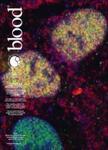版权所有:内蒙古大学图书馆 技术提供:维普资讯• 智图
内蒙古自治区呼和浩特市赛罕区大学西街235号 邮编: 010021

作者机构:Princess Margaret Cancer Centre University Health Network Toronto ON Canada Department of Hematology Centro Hospitalar Universitário de São João Porto Portugal Faculty of Medicine University of Porto Porto Portugal Instituto de Investigação e Inovação em Saúde University of Porto Porto Portugal Instituto Nacional de Investigação Biomédica University of Porto Porto Portugal Ipatimup-Instituto de Patologia e Imunologia Molecular da Universidade do Porto Porto Portugal Department of Oncological Sciences Icahn School of Medicine at Mount Sinai New York NY United States Division of Pediatric Hematology-Oncology Department of Pediatrics Icahn School of Medicine at Mount Sinai New York NY United States Tisch Cancer Institute Black Family Stem Cell Institute The Mindich Child Health and Development Institute Center for Advancement of Blood Cancer Therapies Icahn School of Medicine at Mount Sinai New York NY United States Department of Medical Oncology and Hematology Princess Margaret Cancer Centre University Health Network Toronto ON Canada Department of Hematology University of Toronto Toronto ON Canada Laboratory Medicine Program University Health Network Toronto ON Canada Department of Laboratory Medicine and Pathobiology Faculty of Medicine University of Toronto Toronto ON Canada Ontario Institute for Cancer Research Toronto ON Canada Department of Molecular Genetics University of Toronto Toronto ON Canada Department of Medicine University of Toronto Toronto ON Canada Instituto de Ciências Biomédicas Abel Salazar University of Porto Porto Portugal Division of Hematology and Oncology University of Pittsburgh School of Medicine Pittsburgh PA United States Cancer Therapeutics Program University of Pittsburgh Medical Center Hillman Cancer Center Pittsburgh PA United States
出 版 物:《Blood》 (Blood)
年 卷 期:2025年第145卷第20期
页 面:2361-2373页
学科分类:0710[理学-生物学] 0831[工学-生物医学工程(可授工学、理学、医学学位)] 1002[医学-临床医学] 1001[医学-基础医学(可授医学、理学学位)] 0703[理学-化学] 10[医学]
基 金:Ontario Ministry of Health and Long-Term Care, MOHLTC Ontario Institute for Cancer Research, OICR Government of Ontario Trillium Health William Osler Health Credit Valley International Development Research Centre, CRDI Fundo Europeu de Desenvolvimento Orthopedics Department of Centro Hospitalar de São João Canada Research Chairs Programa Operacional Temático Factores de Competitividade, COMPETE Terry Fox Research Institute, TFRI Princess Margaret Cancer Foundation, PMCF Canadian Institutes of Health Research, IRSC, (89932, 154293) Canadian Institutes of Health Research, IRSC Fundação para a Ciência e a Tecnologia, FCT, (SFRH/BD/136200/2018) Fundação para a Ciência e a Tecnologia, FCT Ministério da Ciência, Tecnologia e Ensino Superior, MCTES, (POCI-01-0145-FEDER-032656) Ministério da Ciência, Tecnologia e Ensino Superior, MCTES Canadian Cancer Society, CCS, (703212) Canadian Cancer Society, CCS
摘 要:Leukemic stem cells (LSCs) fuel acute myeloid leukemia (AML) growth and relapse, but therapies tailored toward eradicating LSCs without harming normal hematopoietic stem cells (HSCs) are lacking. FMS-like tyrosine kinase 3 (FLT3) is considered an important therapeutic target due to frequent mutation in AML and association with relapse. However, there has been limited clinical success with FLT3 drug targeting, suggesting either that FLT3 is not a vulnerability in LSC or that more potent inhibition is required, a scenario where HSC toxicity could become limiting. We tested these possibilities by ablating FLT3 using CRISPR/Cas9-mediated FLT3 knockout (FLT3-KO) in human LSCs and HSCs followed by functional xenograft assays. FLT3-KO in LSCs from FLT3–internal tandem duplication (ITD)-mutated but not FLT3–wild-type AMLs resulted in short-term leukemic grafts of FLT3-KO edited cells that disappeared by 12 weeks. By contrast, FLT3-KO in HSCs from the fetal liver, cord blood, and adult bone marrow did not impair multilineage hematopoiesis in primary and secondary xenografts. Our study establishes FLT3 as an ideal therapeutic target where ITD-positive LSCs are eradicated upon FLT3 deletion whereas HSCs are spared. These findings support the development of more potent FLT3-targeting drugs or gene-editing approaches for LSC eradication to improve clinical outcomes. © 2025 American Society of Hematology